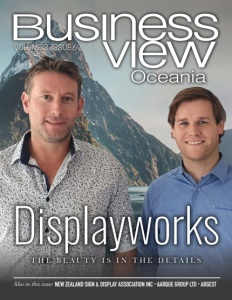With COVID-19 forcing change to the way facilities are managed, facilities managers themselves are being urged to consider what the future of the industry looks like, particularly as society’s expectations of the 2021-and-beyond world continue to rise.
Speaking ahead of the Facilities Management Summit in Auckland next month, Clarkson’s General Manager, Gary Flynn, says that facilities management can’t continue to be done the way it used to. While facilities managers might know this, they might not necessarily know that there are solutions available now. He notes, “Pre-COVID, facilities management was very much working off a traditional model where guys would go out and do their work, have a supervisor to review it, and then liaise with customers.”
Flynn, who believes this can’t be sustained, says that while the pandemic forced new ways of doing things within facilities management, that adaptive mentality now needs to be applied in an ongoing fashion.
A crucial factor that allowed their property maintenance services to continue to the appropriate standard throughout that period was the utilisation of technology. Flynn explains, “Facilities managers and contractors had to turn to and rely heavily on technology in order to adapt to a changing environment – we all had to work out effective methods of servicing and maintaining buildings despite the various lockdown restrictions. Additionally, increasing numbers of Kiwi’s expect better from businesses regarding cost-savings, sustainability, and transparency. Technology is the element that underpins all of these areas for facilities management and allows them to improve drastically.”
Transparency
“Visibility is fast becoming one of the most important qualities in the facilities management space. With the expectation of constant transparency, service providers and contractors should be using technology to get real time, accurate information straight to the customer in a meaningful, concise way,” Flynn says. “We provide live reports and updates of the work that has been undertaken to our customers, and what needs to be done.”
Cost-savings
“Everybody wants more for less, and we believe that is possible in our industry. By implementing things like remote monitoring – having less vans out on the road, and checking things and dealing with them when they need to be dealt with, instead of waiting for them to be discovered – there are actually reduced costs for everyone.”
Sustainability
Flynn adds, “More people want genuine action and deeper consideration for the environment, so less vans on the road definitely makes a difference here. There are also things we can now action to minimise resources and environmental damage, like putting sensors in bins to notify us when one becomes full, or to alert us when a light needs changing.”
While the need for tech implementation has always been in back of everyone’s minds, Flynn believes COVID-19 essentially brought it right to the forefront. He shares, “Everybody should be looking to evolve with their customers and what they want. The future of facilities management is reliant on technology. The two will go hand in hand, with technology supporting the facilities management industry to perform its role more effectively.”
ABOUT
Founded in 1997, Clarksons has over 100 team members across seven offices nationwide. Providing electrical, fuel, maintenance, and facilities management services in the commercial and industrial space. General Manager, Gary Flynn, has over a decade of experience in facilities management locally in New Zealand and internationally. service.clarksons.co.nz



 This information will never be shared to third parties
This information will never be shared to third parties